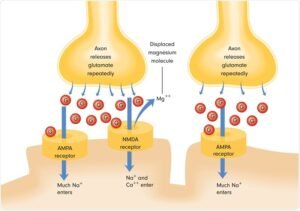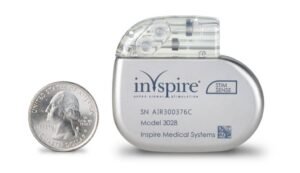PCOS vs. Endometriosis_ What Are the Differences_
PCOS vs. Endometriosis: Understanding the Differences
Read Time: 10 mins
Polycystic Ovary Syndrome (PCOS) and Endometriosis are both hormonal disorders that can lead to infertility, yet they affect the reproductive system in distinct ways. This article explains the key differences, symptoms, causes, and treatment options for each condition.
What is Endometriosis?
Endometriosis occurs when tissue similar to the uterine lining grows outside the uterus, causing pelvic pain, especially during menstruation. It is a common cause of chronic pelvic pain in women of childbearing age. Endometriosis can affect the ovaries, fallopian tubes, and even other organs like the bladder and intestines.
What is PCOS?
PCOS is a metabolic condition where the ovaries and adrenal glands produce excess androgens (male hormones). This can lead to irregular menstrual cycles, ovulation issues, and cyst formation within the ovaries. Women with PCOS often experience additional symptoms such as weight gain, acne, and increased facial and body hair.
Key Symptoms of Endometriosis and PCOS
While both conditions share some common symptoms like heavy menstrual bleeding and infertility, they also have unique signs:
Symptoms of Endometriosis:
-
Chronic pelvic pain
-
Painful menstrual cycles
-
Pain during sexual intercourse
-
Painful bowel movements or urination
-
Heavy periods
-
Infertility
-
Constipation or bloating
Symptoms of PCOS:
-
Irregular menstrual cycles
-
Ovulation issues leading to infertility
-
Excess body and facial hair (hirsutism)
-
Acne and male-pattern baldness
-
Weight gain or obesity
-
Elevated blood sugar levels (insulin resistance)
-
Ovarian cysts
Causes and Risk Factors
Endometriosis:
The exact cause of endometriosis remains unclear, but possible factors include:
-
Retrograde menstruation (menstrual blood flowing backward)
-
Genetics and family history
-
Increased estrogen levels
-
Immune system dysfunction
-
Abdominal surgeries
Risk factors include:
-
Early menarche (before age 11)
-
Family history of endometriosis
-
Short menstrual cycles
-
Heavy menstrual bleeding
PCOS:
PCOS is a complex endocrine disorder influenced by genetics, lifestyle, and diet. Key factors include:
-
Insulin resistance
-
High androgen levels
-
Obesity
-
Hormonal imbalances leading to irregular ovulation
Risk factors for PCOS include:
-
Obesity and weight gain
-
Family history of PCOS
-
Premature puberty
-
Diabetes or insulin resistance
Can You Have Both Endometriosis and PCOS?
Although uncommon, it is possible for a person to have both conditions. Some research suggests that endometriosis may be less severe when present alongside PCOS.
Diagnosing Endometriosis and PCOS
Both conditions require specific tests for diagnosis, with endometriosis typically being harder to diagnose than PCOS.
Diagnosing Endometriosis:
-
Pelvic Exam: Identifies cysts or areas of tenderness.
-
Imaging Tests: A pelvic ultrasound can reveal cysts, while an MRI can detect endometrial tissue outside the uterus.
-
Laparoscopy: A surgical procedure to visually confirm the presence of endometriosis.
Diagnosing PCOS:
-
Physical Exam: Assesses for signs of excessive hair growth, acne, or obesity.
-
Pelvic Ultrasound: Checks for cysts in the ovaries.
-
Blood Tests: Measures androgen levels, thyroid function, and cholesterol.
Treatment Options for Endometriosis and PCOS
Treatment for Endometriosis:
-
Pain Management: Nonsteroidal anti-inflammatory drugs (NSAIDs) can relieve pain. Hormonal treatments like Myfembree and Orilissa reduce symptoms.
-
Surgery: In severe cases, removal of the uterus, ovaries, or other affected tissue may be necessary.
-
Lifestyle Changes: A diet rich in fruits, vegetables, and whole foods may help manage symptoms.
Treatment for PCOS:
-
Medications: Hormonal contraceptives can regulate periods and reduce androgens. Antiandrogens help manage hirsutism.
-
Lifestyle Changes: Weight loss of 5%-7% can restore normal menstrual cycles. Managing stress and mental health is also crucial for overall well-being.
-
Insulin Sensitizers: Medications like Metformin can improve insulin resistance.
Frequently Asked Questions
Can PCOS and Endometriosis cause infertility?
Both conditions can lead to infertility, though the mechanisms differ. Endometriosis causes infertility by affecting the structure and function of reproductive organs, while PCOS primarily leads to infertility through anovulation (lack of ovulation).
Is there a link between PCOS and Endometriosis?
While both conditions share some symptoms, such as hormonal imbalances and reproductive irregularities, their causes and mechanisms are distinct. However, some women may experience both conditions simultaneously.
Can Endometriosis lead to weight gain?
Endometriosis itself does not directly cause weight gain, but it can affect hormones and metabolism, which may lead to changes in weight. Additionally, lifestyle factors like limited physical activity due to pain can contribute to weight gain.
What is the best diet for managing PCOS and Endometriosis?
While no single diet works for everyone, a balanced diet rich in fruits, vegetables, lean proteins, and healthy fats can support both conditions. Reducing gluten and dairy intake has been suggested in some studies for managing endometriosis symptoms.
Key Takeaways:
-
PCOS and Endometriosis are both hormonal disorders that can impact fertility.
-
Endometriosis is primarily a structural issue affecting reproductive organs, while PCOS is a metabolic disorder.
-
Both conditions require specific diagnostic tests and treatment approaches, often tailored to the individual’s symptoms and reproductive goals.
For more health tips and insights, subscribe to our newsletter for the latest updates








